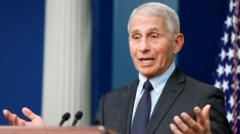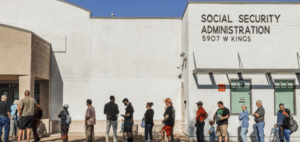These pardons, including those for siblings and members of the January 6 investigation, have ignited political debates on justice and accountability as Biden seeks to protect his family from perceived political attacks.
**Biden's Last-Minute Pardons: A Shield for Family and Allies Amid Political Turmoil**

**Biden's Last-Minute Pardons: A Shield for Family and Allies Amid Political Turmoil**
In a controversial move during his final moments as president, Joe Biden issued pre-emptive pardons for close family members and key public servants.
In an unexpected and decisive action, President Joe Biden, in the waning hours of his presidency, granted pre-emptive pardons to several of his family members, including brothers James and Frank Biden, along with sister Valerie Biden Owens. The move is framed as a defensive measure to protect against politically driven hostility and should not be interpreted as an admission of guilt, he emphasized.
The pardon list also notably includes Anthony Fauci, the architect of the U.S. Covid response, and members of the House of Representatives investigating the January 6 Capitol riot, with Biden describing their prosecutions as unjust and politically motivated. In his statement, he expressed his gratitude for their public service: "Our nation owes these public servants a debt of gratitude for their tireless commitment."
Former President Donald Trump had a tumultuous relationship with Fauci during the pandemic. Following the events of January 6, Trump has often targeted those who sought accountability, suggesting retribution against his political opponents. Over the years, his allegations of corruption regarding Joe Biden and his family spurred a prolonged investigation by House Republicans, which ultimately failed to find any significant wrongdoing.
"My family has faced relentless attacks rooted in a desire to undermine me," Biden asserted in his announcement. Alongside pardoning family members, he also granted pardons to his brother-in-law John Owens and sister-in-law Sara Jones Biden. Previously, Hunter Biden was granted a pardon related to two criminal cases he was involved in.
As Biden prepared to leave office, he also commuted the life sentence of Leonard Peltier, an Indigenous activist convicted of murdering FBI agents in 1975, allowing him to transition to house arrest. This last-minute decision sparked harsh criticism from Trump's communications team. Deputy chief of staff Taylor Budowich labeled the pardons as a "historic attack on justice," arguing that they protect a group of political allies from accountability.
Biden also included Mark Milley, the former chairman of the Joint Chiefs of Staff, in the pardons, acknowledging the challenges posed by political threats and the burden placed on families of public servants. Dr. Fauci has publicly expressed appreciation for Biden's actions, emphasizing his innocence and the stress such threats have caused.
The pardons extended to all members of the Select Committee investigating the Capitol riots and their staff, though they do not provide immunity from congressional inquiries that may still loom under a Republican-led Congress. Former Capitol Police officer Harry Dunn expressed gratitude for Biden’s leadership in these turbulent times, emphasizing the sacrifices made by public servants in their duty.
With Trump expected to announce a series of pardons for those convicted in connection with the January 6 riots, he continues to position himself against perceived internal threats, suggesting a tumultuous future landscape for American political discourse.
The pardon list also notably includes Anthony Fauci, the architect of the U.S. Covid response, and members of the House of Representatives investigating the January 6 Capitol riot, with Biden describing their prosecutions as unjust and politically motivated. In his statement, he expressed his gratitude for their public service: "Our nation owes these public servants a debt of gratitude for their tireless commitment."
Former President Donald Trump had a tumultuous relationship with Fauci during the pandemic. Following the events of January 6, Trump has often targeted those who sought accountability, suggesting retribution against his political opponents. Over the years, his allegations of corruption regarding Joe Biden and his family spurred a prolonged investigation by House Republicans, which ultimately failed to find any significant wrongdoing.
"My family has faced relentless attacks rooted in a desire to undermine me," Biden asserted in his announcement. Alongside pardoning family members, he also granted pardons to his brother-in-law John Owens and sister-in-law Sara Jones Biden. Previously, Hunter Biden was granted a pardon related to two criminal cases he was involved in.
As Biden prepared to leave office, he also commuted the life sentence of Leonard Peltier, an Indigenous activist convicted of murdering FBI agents in 1975, allowing him to transition to house arrest. This last-minute decision sparked harsh criticism from Trump's communications team. Deputy chief of staff Taylor Budowich labeled the pardons as a "historic attack on justice," arguing that they protect a group of political allies from accountability.
Biden also included Mark Milley, the former chairman of the Joint Chiefs of Staff, in the pardons, acknowledging the challenges posed by political threats and the burden placed on families of public servants. Dr. Fauci has publicly expressed appreciation for Biden's actions, emphasizing his innocence and the stress such threats have caused.
The pardons extended to all members of the Select Committee investigating the Capitol riots and their staff, though they do not provide immunity from congressional inquiries that may still loom under a Republican-led Congress. Former Capitol Police officer Harry Dunn expressed gratitude for Biden’s leadership in these turbulent times, emphasizing the sacrifices made by public servants in their duty.
With Trump expected to announce a series of pardons for those convicted in connection with the January 6 riots, he continues to position himself against perceived internal threats, suggesting a tumultuous future landscape for American political discourse.





















